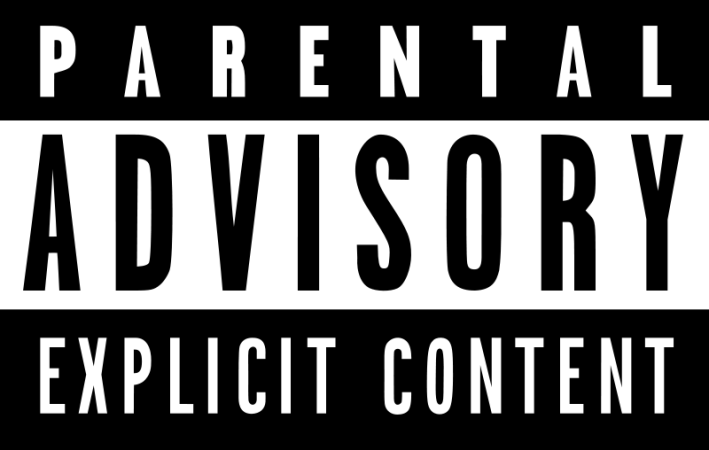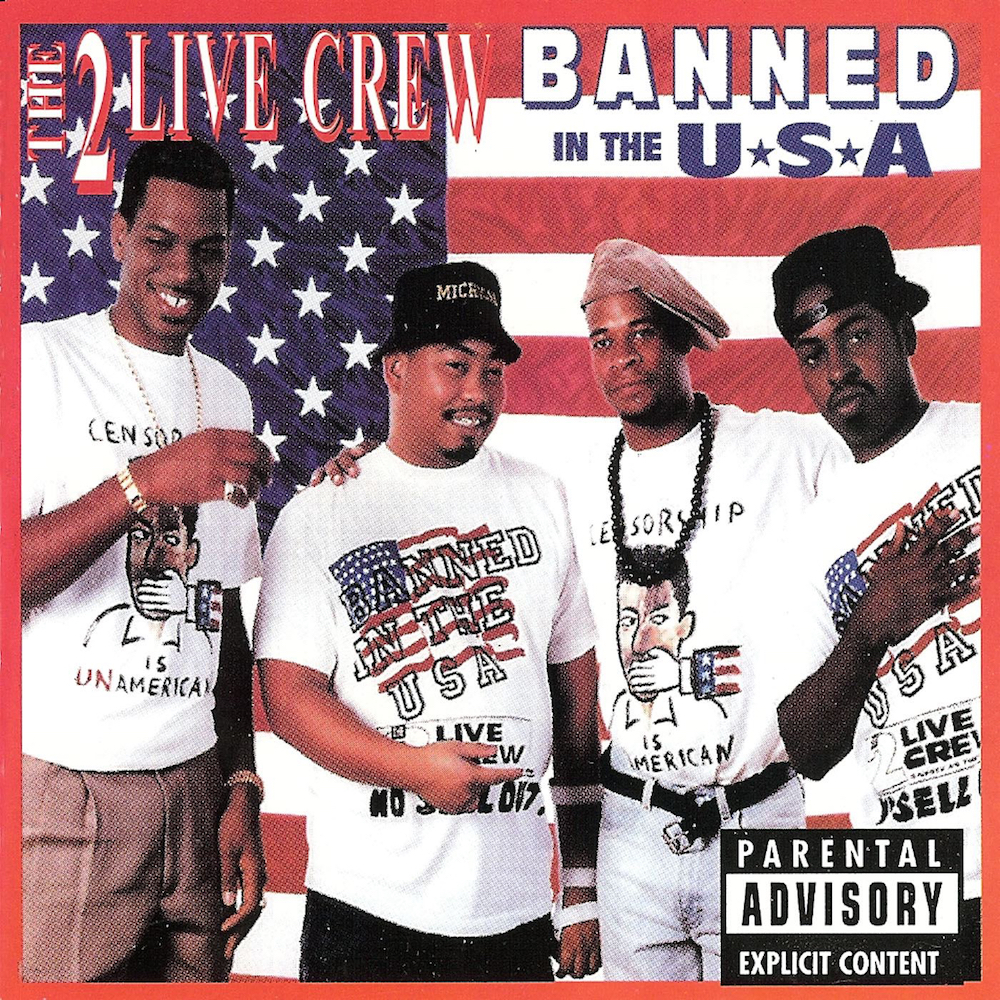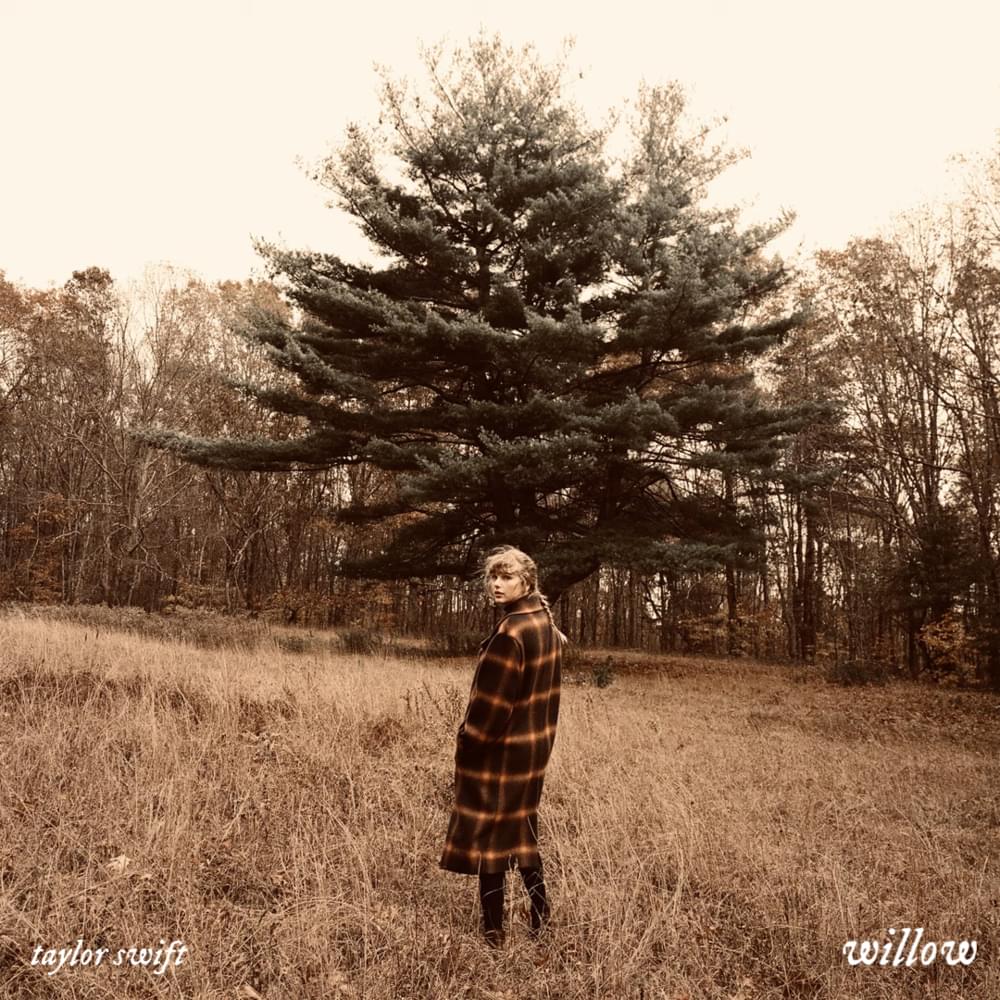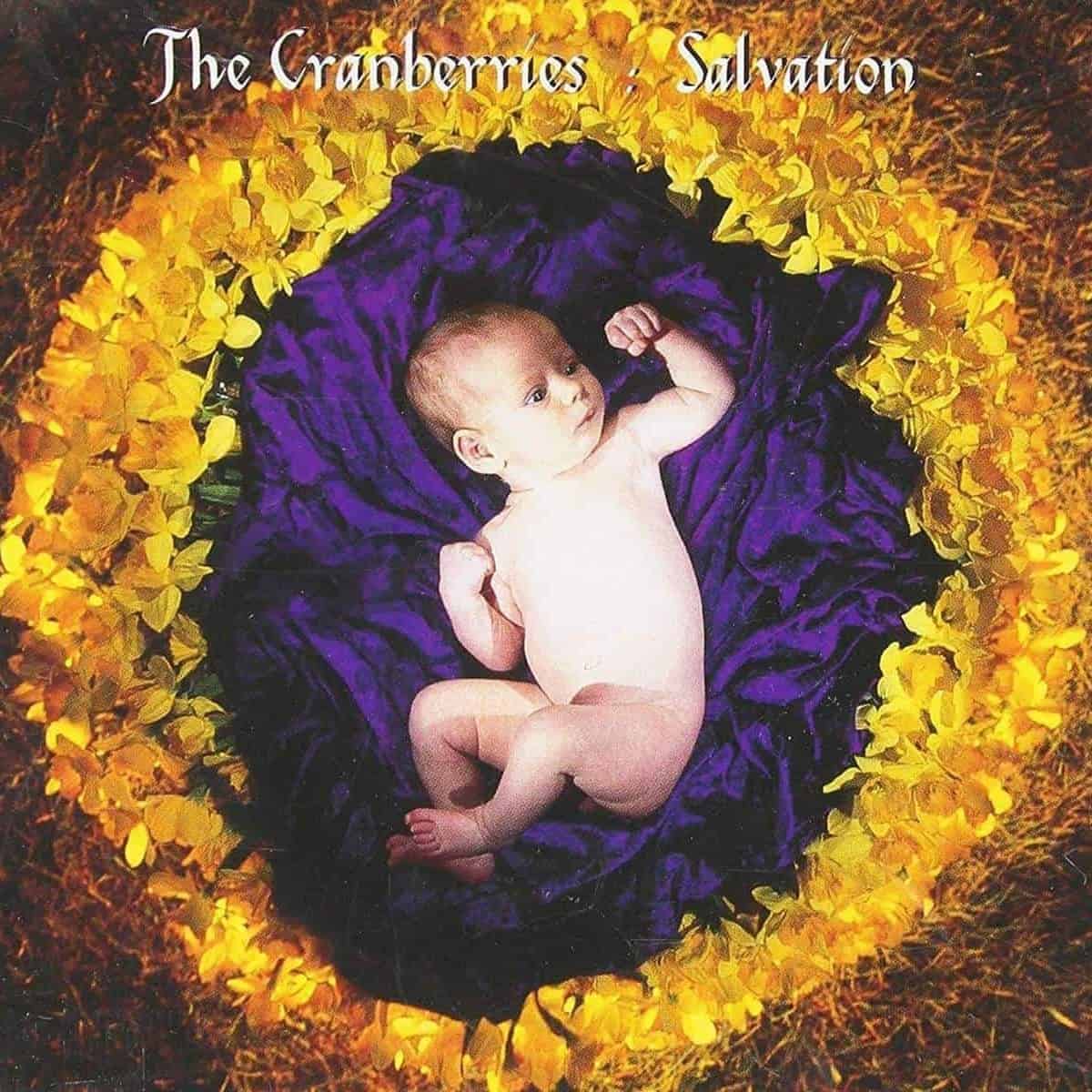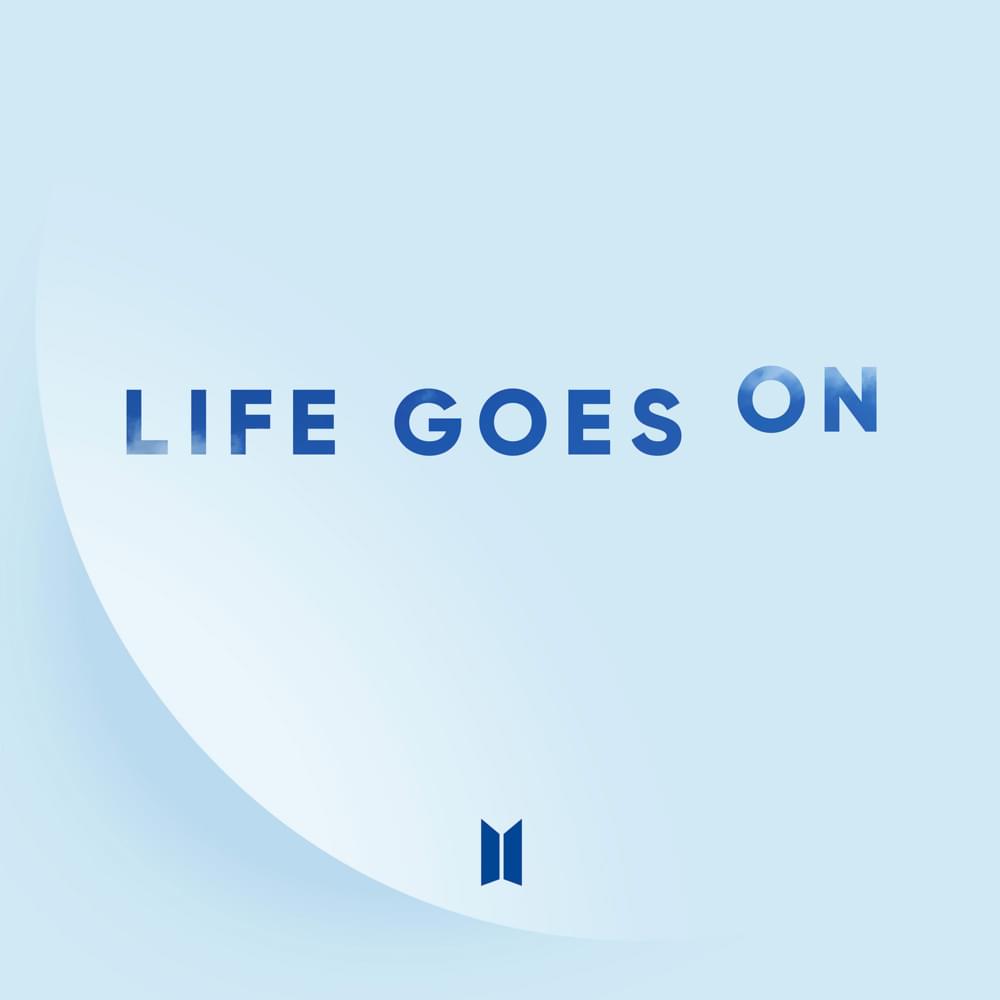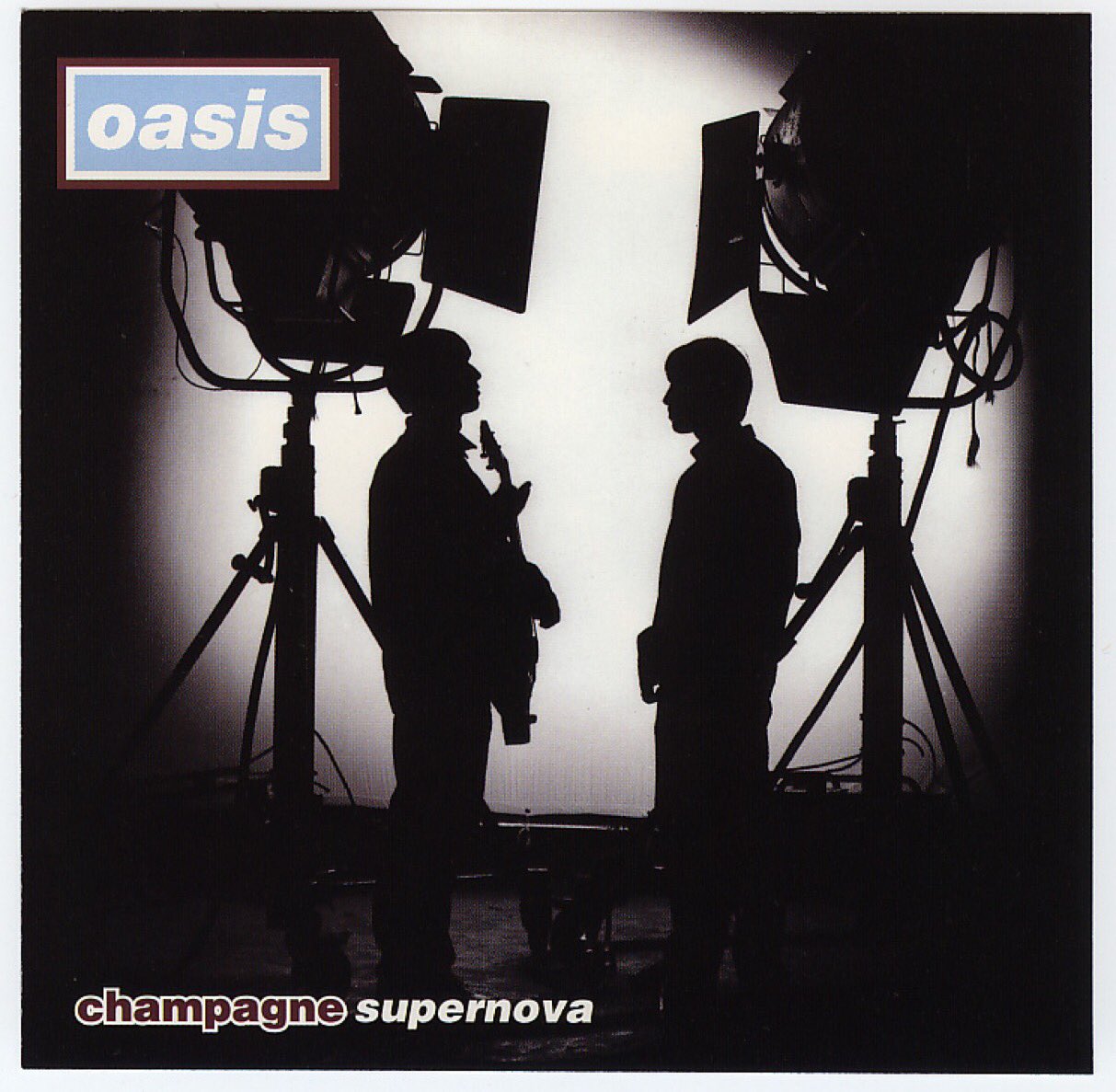You want to talk about "cancel culture"? The Parental Advisory sticker as we know it turns 30 today, as does the first album to officially receive its stamp of disapproval, 2 Live Crew's Banned In The U.S.A. As absurd as it sounds today -- when school shootings and climate change are more accurately diagnosed as major threats to today's youth -- it's time to look back at what, with hindsight, is one of the more aggravating moral crusades of the late 20th century, a bipartisan effort to target popular culture on behalf of The Children.
How did we get to the point where dirty music was considered a major political priority? Recorded obscenity and "party records" were an issue dating way back -- way way back -- before Congress figured they were worth legislating. Lenny Bruce might've been public enemy #1 for decency fetishists at the turn of the '60s, but by the end of the decade saying "motherfucker" on a record was an issue left up to the label and the retailers they dealt with. Just leave the dirty words off the airwaves and let the market correct the rest.
By the time the rock and pop markets were becoming too lucrative to be condescended to in the '70s, f-bombs started slipping through the grooves and making it to record shelves largely unimpeded. If a former Beatle and his Grammy-winning drinking buddy could get away with it, why try to make a big deal about it? With the orgasmic sounds of disco, the undisguised rawness of funk, and the confrontational bluntness of punk carving new listener group niches throughout the decade, there were more possibilities to hear undiluted expression -- and more possibilities to flat-out avoid it. Don't want to hear Donna Summer moaning? Just turn to adult contemporary.
But something else happened that decade, largely in reaction to disco decadence and porno chic and the assorted liberation movements that accompanied it all. The Moral Majority, the right-wing merging of evangelical fundamentalism and free-market conservatism, reared its head at the sunset of the '70s and grew to define the Republican party well into the 21st Century. With their increased power throughout the '80s came church groups like the record-burning reactionaries the Peters Brothers and cop-mindset organizations like The Back In Control Training Center, which saw both the mainstream popularity of MTV-cosigned superstars and the underground subcultures of '80s youth as grave threats to the moral fabric of America. Those might've been nothing more than a goofy bit of clueless backwards-chair-sitting efforts from conservative crusaders to protect the kids if it weren't for Tipper Gore.
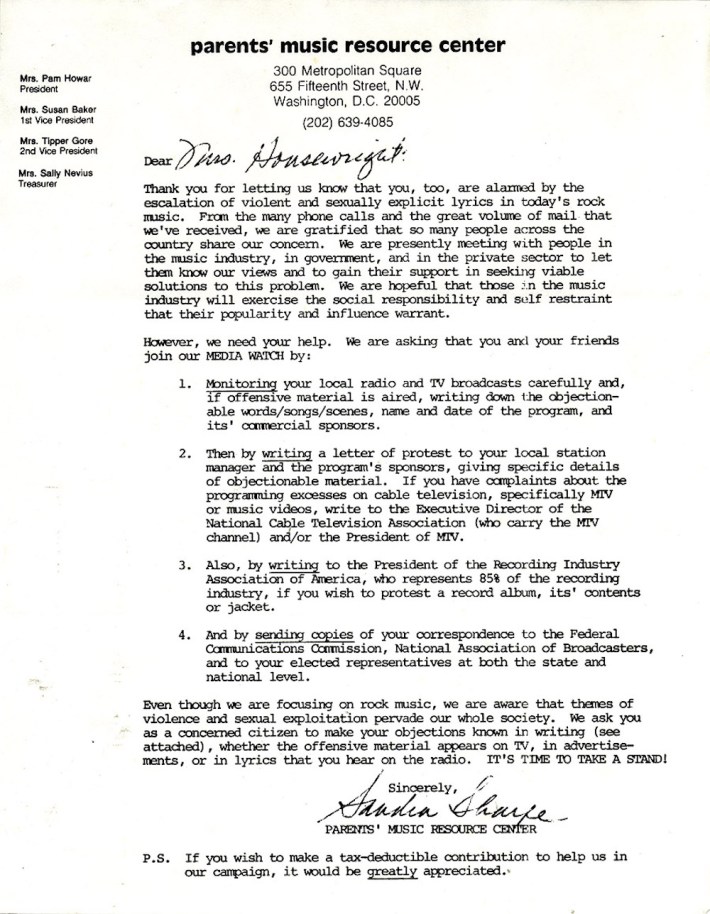
Prince's Purple Rain is one of the most acclaimed albums of its time, but to Tipper, it was a corrupting influence on her 11-year-old daughter, who she caught singing the lyrics to "Darling Nikki." Horrified to discover that her child was exposed to the concept of female masturbation, Gore formed a task force to deal with this problem, and called on three other wives of Washington figures: Treasury Secretary James Baker's wife Susan, D.C. City Council Chairman John Nevius's wife Sally, and Pam Howar, who was married to area realtor Raymond Howar. (Aside from the Democrat Gore, the other three women were married into Republican households.) Starting in 1985, the Parents Music Resource Center took the initiative to start a campaign to target "obscene" music, with the presumed goal of making the Recording Industry Association Of America create a rating system much like the one the Motion Picture Association Of America was using for films.
The pitfall of that idea was clear: who determines what's "obscene"? Considering the MPAA's notorious standards for rating films -- ones that enforced strict heteronormativity, upheld sexist double-standards, and put the brief glimpse of a boob on the same plane of morality as a bloody machine gun massacre -- putting a similar set of dicey standards on a strictly audio-only medium was seen as both ridiculous and dangerous. And while the hard rock and heavy metal of the era was the most widely-targeted, it wasn't just big-hair dirtbags like Dee Snider or countercultural wiseasses like Frank Zappa who testified against the PMRC's efforts. Mellow folkie and friend to Muppets John Denver, who the music press figured would be a ringer for the censors due to his own music's inoffensiveness, instead straight-up invoked Nazi Germany in his good-natured yet clearly upset reaction to the censoriousness of the whole enterprise.
But something strange happened on the way to the Parental Advisory sticker. The PMRC's original "Filthy 15," a list of songs as innocuously suggestive as Madonna's "Dress You Up" and as deliberately occult as Mercyful Fate's "Into The Coven," spanned a surprisingly wide range of pop, R&B, and rock acts. Yet once all the dust was settled and the RIAA agreed to start using an "explicit lyrics" warning label on album covers, a new threat had emerged to potentially corrupt the precious minds of mid-American youths.
With the strong crossover success and even stronger media controversy around N.W.A's 1988 album Straight Outta Compton, the censors had a new target that made the likes of W.A.S.P. and Def Leppard seem like toddler stuff to the moral panic crowd: sex, violence, and Black anti-authoritarian politics? Watch the fuck out. By decade's end, hip-hop had become such a high-profile target that gangsta icon Ice-T made it one of the big conceptual centerpieces of his 1989 album The Iceberg / Freedom of Speech… Just Watch What You Say.
This, of course, is where 2 Live Crew come in. The Miami bass stars were a regional phenomenon in the mid-to-late '80s, but once their 1989 album As Nasty As They Wanna Be hit shelves, the full force of the music censorship controversy came down on them, making them a nationwide cause célèbre and double-platinum seller on an indie label. As a group that didn't start catching on until they ratcheted up the irreverent sex lyrics, rapper/promoter/label head/mastermind Luke Campbell considered 2 Live Crew a booty-shaking equivalent of old-school Black comedy and party records, an '80s hip-hop update of Blowfly and Rudy Ray Moore's classics of dirty underground music. In '88, their album Move Somethin' garnered some press for getting an Alabama record store clerk busted when he sold a copy to an undercover cop, but a jury found in the store's favor after balking at the precedent of a merchant being held liable for selling obscene music.
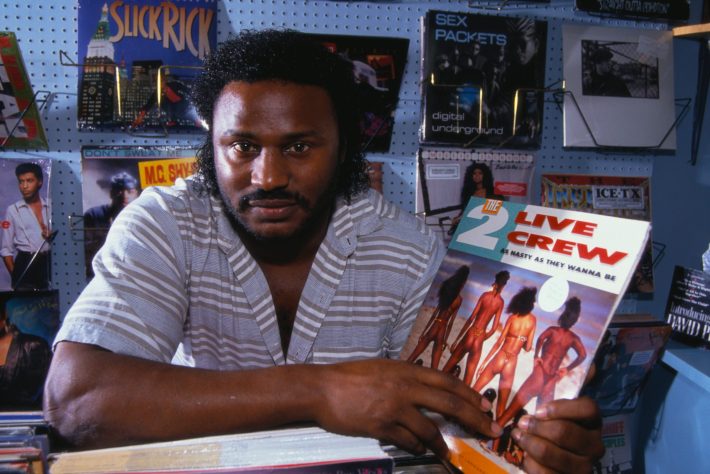
By the start of the new decade, the censors were ready for them. As the first music album to ever be deemed obscene under rule of law, As Nasty As They Wanna Be was cited as pornographic material and went on trial in the Spring of 1990 in the United States District Court for the Southern District of Florida. (The lawyer who pushed hardest for the investigation into the record, Jack Thompson, would become notorious to a whole new generation throughout the '90s and '00s for his relentless crusade against violent video games.) And since the argument of District Court Judge Jose Gonzalez was that the album didn't just appeal to the "prurient interest" but did so in an artless, anti-intellectual way, the actual aesthetic value of 2 Live Crew was as much under fire as their explicitness.
The case spurred wild debate in every corner of music journalism -- Robert Christgau, in sex-positive/anti-misogynist mode, memorably stated that "this record is pornographic; that's one of the few good things about it" -- but the album's retrospective role as a pioneering landmark in Southern rap holds more sway nowadays than the controversy. And if controversy does arise, it's less that the songs are about fucking than the notion that the songs are about a particularly self-centered as-long-as-the-man-gets-off version of sex that doesn't seem too fun for women. At which point the "it's satire" defense comes in, and then it's a whole other set of complications. (Especially when you see how many women are in the audience in old concert footage.) But in 1990, it was popular to invoke misogyny in PMRC-driven censorship efforts, a reasonable-seeming yet largely diversionary tactic that might've been better-served to address, say, reproductive rights or wage gaps or sexual assault cases -- things that conservatives would be loath to even consider reforming.
In any case, even a theoretical version of 2 Live Crew that wrote lyrics about body-positivity, making women climax multiple times, and advocating for the rights of sex workers would've been ruled obscene -- not just to children, but to everyone. Broward County Sheriff Nick Navarro, who the group sued for his efforts to pull the album from shelves, diverted the argument from depicting the music as harmful to minors to putting it in the same category as pornography on video and in print. And when a copy of As Nasty was sold to an undercover cop two days after the June 6 ruling, the shop owner was put under arrest for it -- no matter that he only sold it to adults. Meanwhile, the bowdlerized version of the album, As Clean As They Wanna Be, would get the group into another kind of trouble entirely: a parody of Roy Orbison's "Oh, Pretty Woman" included to make up for cut content got them sued by Orbison's publisher Acuff-Rose Music, Inc. when the Crew released the track without clearing it. (An initial fair-use argument was later reversed by the Supreme Court and led to an out-of-court settlement.)
And so, finally, we come to Banned In The U.S.A.: the culmination of everything the PMRC fought to enforce, the RIAA went along with, and a vast majority of musicians across all genres objected to. Its status as the first album to get the "Tipper sticker" was one notable aspect of the record, but its status as a middle finger to the censors, the courts, and the media was a bigger, stranger one. The title cut was earnest enough, an interpolation of Springsteen's "Born In The U.S.A." given the green light by the Boss himself (despite Thompson's better efforts). It started with a recording of then-president Poppy Bush invoking the Gettysburg Address ("Government of the people, for the people, by the people") before rappers Fresh Kid Ice and Brother Marquis stand up for the First Amendment, accuse politicians of using 2 Live Crew as a stepping stone to further their careers, and promise a victory over their antagonists in the government. Luke's diatribe at the end is a blistering Red Scare-baiting concern-troll to conservatives ("This is not China! This is not Russia! This is not the place where they brought down the wall!"), even as it concludes with the free-speech absolutist statement that "all you right-wingers, left-wingers, bigots, Communists, there is a place for you in this world, because this is the land of the free, home of the brave -- and 2 Live is what we are!"
The bulk of the album, and the nearly 50-minute documentary made to promote it -- directed by Penelope Spheeris, less than two years before she helmed Wayne's World -- puts forward another side of 2 Live Crew that was always there: the irreverence, the goofiness, the comedy. It's not just that they like to fuck, and that they like rapping about fucking, it's that fucking is funny, and people getting shocked at the idea of fucking is super funny. So while there's a tone of sincerity and self-defense in tracks like gratitude-driven story-of-a-band anthem "Man, Not A Myth" ("We stayed independent, and we didn't sell out/ We started off with no help from the White House") and the hype-corrective "So Funky" ("People don't know unless you tell them so/ But it was cool when we were just in the ghetto/ We did ask you to publicize us/ But it was you who created the fuss"), there's a real giddiness in the music and lyrics, as though they're getting away with something -- even if they technically weren't.
For instance, there's the story behind "Fuck Martinez" -- which, on the surface, is a call-out of Sheriff Navarro and former Florida Governor Bob Martinez, who'd helped kick off the whole rigamarole by sending state prosecutors after 2 Live Crew in the first place in order to get As Nasty As They Wanna Be banned under Florida's obscenity laws. The song's not much more than a series of chants -- "Fuck Martinez!", "Fuck Navarro," "Martinez's wife, you know she suck a mean dick!" -- but gave themselves an out in that they never mention which Martinez and Navarro they're talking shit about, going so far as to get a signed release by two other men with the same surnames stating it was actually about them.
"Strip Club" and "Face Down Ass Up" are the main-draw booty anthems, both of which are drunk on their own explicitness and take on an almost hilarious quality as a side effect, capped off in both instances by Luke's closing ad-libs that are respectively self-effacing ("Hold on, hold on, hold on, Chris, you gave her a 20? You buyin' pussy, man, that's against the law. You know we got locked up one time already!") and equal-time objectifying (if "Pussy ain't nothin' but meat on the bone," well, so's dick -- "Suck it or fuck it or leave it alone," as they say.) And hey, who else was causing a moral panic that year? Some anti-authoritarian smart-ass cartoon kid whose shirts are getting banned in schools? Let's make him a new dance craze! (The actual Simpsons-cosigned "Do The Bartman," ghost-co-produced by Michael Jackson, was recorded later that September and released in time for Christmas; one wonders if it was some sort of pre-emptive damage control.)
Still, it was the end of an era -- sort of. The album went Gold, which was solid but disappointing compared to its predecessor's multi-platinum success, though it's safe to assume that retailers like Walmart refusing to stock the album, even in a cleaned-up version, had a lot to do with it. As much as it was the principle of the thing when it came to artists agitating for free speech, it was also a bottom-line issue, and one that typically hit artists harder than it did the labels who went with it. As much as the Parental Advisory sticker was considered a double-edged sword -- it mollified the censors, but also alerted young listeners as to what albums would provide the most transgressive thrills -- it put artists under the gun. It's either be censored by a sticker that will inevitably put a major dent in your sales, or censor yourself in the hopes that it'll keep your units moving and your label happy.
Meanwhile, the fact that Banned In The U.S.A. was initially billed as "The Luke LP Featuring the 2 Live Crew" was a sign that the legal troubles were threatening to shake up the group's unified front. Though Fresh Kid Ice would stay alongside Luke for the remainder of the Crew's first decade, Luke and 2 Live Crew would become separate entities by 1995, with the lineup sans Luke contributing to the Friday soundtrack and Luke himself going bankrupt, along with his label. And while they were eventually exonerated in 1992 when the 11th Circuit Court of Appeals overturned the obscenity charge -- with a defense by Henry Louis Gates, Jr. -- the eventual rise of Southern rap in the mid '90s left 2 Live Crew and Luke more acknowledged forefathers than best-selling peers.
They'd maintain just fine. The original crew would reunite here and there until Fresh Kid Ice's death in 2017, and Luke's current polymath-style career as a latter-day pundit has led to a wide-ranging podcast and a recurring column for the alt-weekly Miami New Times. (If you thought Bob Martinez is the only Florida Governor on his shit list, go read what he thinks about Ron DeSantis.) To this day, it's a smarter braintrust than anyone gave them credit for.
Hip-hop remained a lightning rod throughout the '90s and into the new millennium, culminating with the eventual nightmare-made-flesh of the Gangsta Rap-Listening Middle-American White Kid emerging in the form of Eminem. But somewhere along the line, something changed. The forces of censorship would go after music and video games and pro wrestling and whatever other threat to children's sanctity for a while into the 2000s, but the Monica Lewinsky affair laid bare some of the more absurd right-wing hangups about consensual sex (and some of the Democrats' blind eyes towards exploitation of women). The 2000 election might've hinged on the votes of a few thousand Floridians who refused to vote for Gore because of what his wife started, and the repercussions of that -- well, you know the story there.
But whether or not you consider the W years -- from 9/11 to the Iraq War to Katrina to the Great Recession -- the era where real panics drastically overwhelmed the moral ones, it's also worth noting that shock culture got to the point where it felt unremarkable, where successions of pop-culture boogeymen got so fatiguing that people yearned for some kind of new sincerity. Meanwhile, offending people or otherwise freaking them out became such a lucrative form of pseudo-rebellion, from South Park to Grand Theft Auto to Hostel, that it usually just felt like a matter of time before they just felt more tiring than transgressive. And who gives a shit about a Parental Advisory when nobody's buying the CDs they'd traditionally been printed on? Just toggle an option on Spotify: bam, there's your curse words, simple as that.
